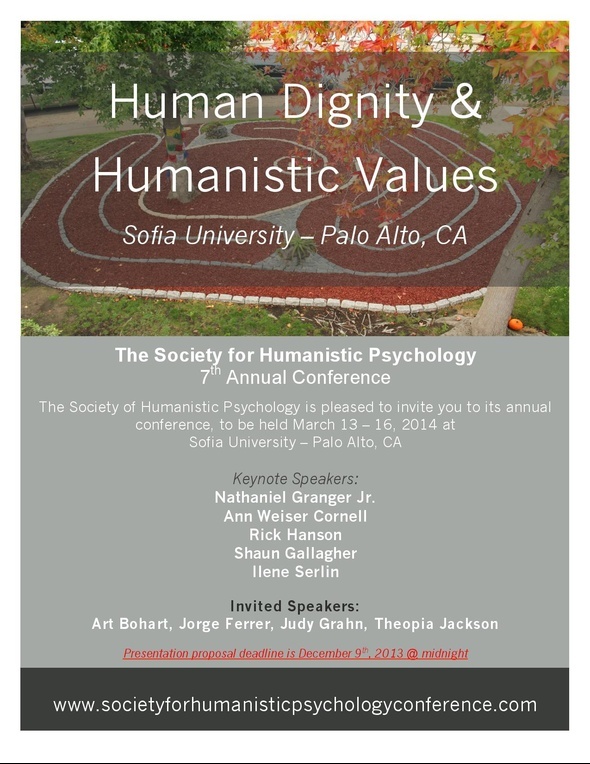What is Humanistic Psychology?
The society represents a constellation of "humanistic psychologies" that includes the earlier Rogerian, transpersonal and existential orientations as well as the more recently developing perspectives of phenomenological, hermeneutic, constructivist, feminist and postmodern (social constructionist) psychologies.
We seek to contribute to psychotherapy, education, theory, research, epistemological diversity, cultural diversity, organization, management, social responsibility and change. In particular, we have been at the forefront in the development of qualitative research methodologies.
Our longstanding interest in the well-being of all persons, and in the importance of living life with purpose and meaning, places humanistic psychology in kindred and even foundational relationship with the more recent positive psychology movement In expanding our self-conception we invite participation from APA members, associates and student affiliates who are open to the challenge of broadening the frontiers of psychology for the 21st Century.
Humanistic psychology aims to be faithful to the full range of human experience. Its foundations include philosophical humanism, existentialism and phenomenology. In the science and profession of psychology, humanistic psychology seeks to develop systematic and rigorous methods of studying human beings, and to heal the fragmentary character of contemporary psychology through an ever more comprehensive and integrative approach. Humanistic psychologists are particularly sensitive to uniquely human dimensions, such as experiences of creativity and transcendence, and to the quality of human welfare. Accordingly, humanistic psychology aims especially at contributing to psychotherapy, education, theory, philosophy of psychology, research methodology, organization and management, and social responsibility and change.







